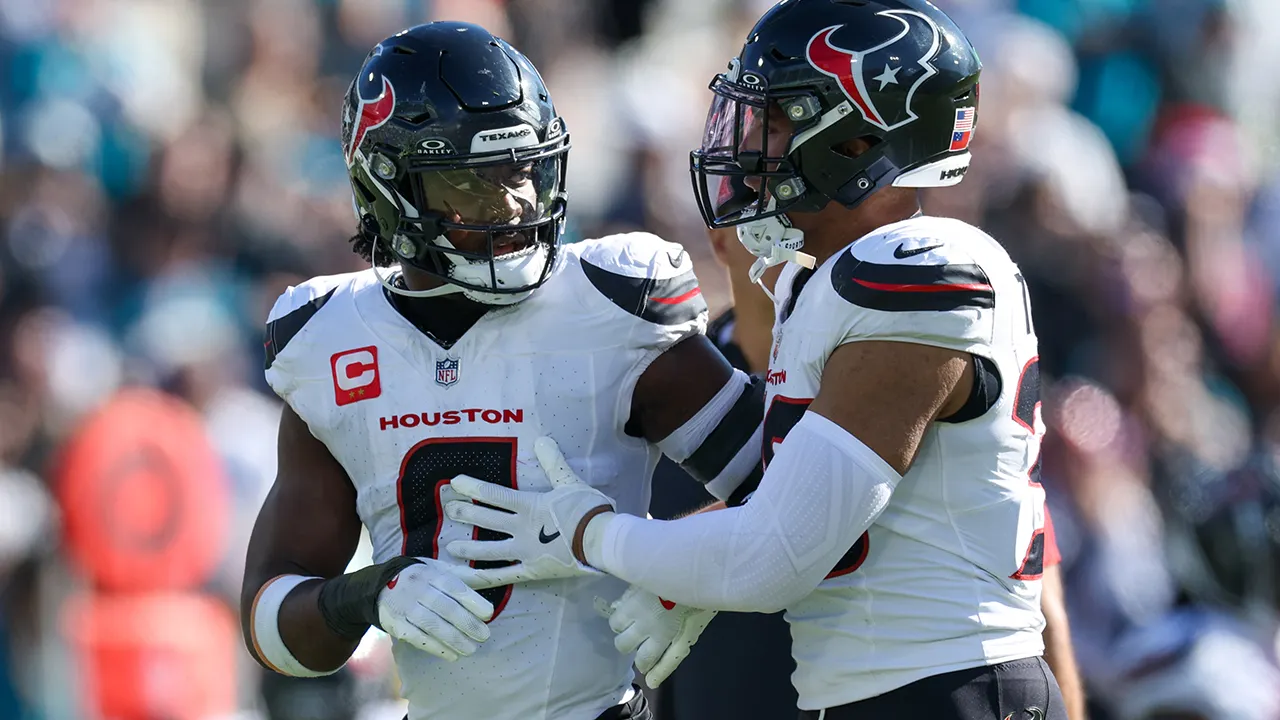Introduction
In a recent NFL game, Texans linebacker Azeez Al-Shaair ignited a firestorm of controversy following a hit on Jacksonville Jaguars quarterback Trevor Lawrence. The incident not only raised questions about the legality and safety of tackles in professional football but also intersected with broader societal issues due to Al-Shaair’s choice of footwear. The linebacker donned cleats adorned with pro-Palestinian messages, prompting a wave of backlash from fans and commentators alike. This article dissects the implications of this incident, exploring the intersection of sports, activism, and the responsibilities of athletes in today’s socio-political climate.
The Incident: A Hit That Divided Opinions
The controversial hit on Trevor Lawrence occurred during a critical point in the game, leading to immediate scrutiny over Al-Shaair’s tackling technique. Critics argue that the hit was reckless and could have caused significant injury to the quarterback, a sentiment echoed by various analysts and former players in the days following the game. As the NFL has increasingly focused on player safety, with rules designed to protect quarterbacks from dangerous hits, Al-Shaair’s tackle was seen by many as out of line with these evolving standards.
Legal or Illegal? The Debate Over the Hit
In assessing the legality of the tackle, the NFL’s rulebook outlines specific guidelines for hits on quarterbacks. These rules are designed to prevent unnecessary injury and ensure a more family-friendly viewing experience. Some key points include:
- Quarterbacks must be given protection when they are in a throwing motion.
- Hits to the head and neck area are strictly prohibited.
- Defensive players must avoid hitting a quarterback who is deemed to be in a “defenseless” position.
Reactions from fans and analysts have been mixed. While some defended Al-Shaair’s actions as part of the aggressive nature of the sport, others were quick to condemn the hit as a violation of the NFL’s safety protocols. The league itself has a vested interest in maintaining a narrative that prioritizes player safety, which could lead to potential disciplinary action against Al-Shaair.
Activism in Sports: A Double-Edged Sword
Adding another layer to the controversy is Al-Shaair’s decision to wear pro-Palestinian cleats during the game. This choice has reignited discussions about athletes’ roles as activists and the impact of sports on social issues. In recent years, many athletes have used their platforms to advocate for various causes, ranging from racial equality to climate change. However, this activism is not without its challenges.
The Intersection of Sports and Politics
While many fans appreciate athletes who take a stand on social issues, others believe that sports should remain apolitical. Al-Shaair’s cleats featured messages supporting Palestinian rights, which some fans perceived as controversial or inappropriate for a sporting event. This has led to a polarized response:
- Supporters argue that athletes have a responsibility to leverage their influence for positive change.
- Critics claim that sports should be an escape from political discourse, and such displays are divisive.
The question remains: should athletes use their platforms to address societal issues, or should they focus solely on their performance? This dilemma reflects a broader societal debate about the role of public figures in activism.
The Broader Implications of Al-Shaair’s Actions
Al-Shaair’s hit and choice of footwear not only affect his career but also serve as a case study for the evolving relationship between sports and activism. The backlash he faces could have several implications:
- Future of Athlete Activism: Al-Shaair’s experience may deter other athletes from expressing their political views publicly, fearing similar backlash.
- Impact on Sponsorships: Controversial actions can lead to loss of sponsorship deals, as brands often seek to align with individuals who reflect their values.
- Fan Engagement: Teams may need to rethink their strategies for fan engagement, as polarized reactions to athlete activism can affect attendance and viewership.
Learning from the Past
Historically, athletes who have engaged in activism, like Muhammad Ali and Colin Kaepernick, have faced intense scrutiny but also made significant impacts on societal conversations. Al-Shaair’s situation presents an opportunity to analyze the potential consequences of athlete activism in an era where social media amplifies every action.
Conclusion
Azeez Al-Shaair’s controversial hit on Trevor Lawrence, coupled with his pro-Palestinian cleats, has sparked an essential dialogue about the intersection of sports, safety, and activism. As the sports world continues to grapple with these issues, athletes like Al-Shaair find themselves at the forefront of a crucial cultural conversation. The future of athlete activism remains uncertain, but one thing is clear: the lines between sports and social issues are increasingly blurred, and players will need to navigate these waters carefully.
As fans and commentators continue to debate the merits and implications of Al-Shaair’s actions, it is important to recognize the unique position athletes hold in society today. Their platforms can inspire change, but they also come with responsibilities that can impact their careers and the sports they represent.
For more insights on athlete activism, visit Sports and Activism.
See more Sky News Portal



